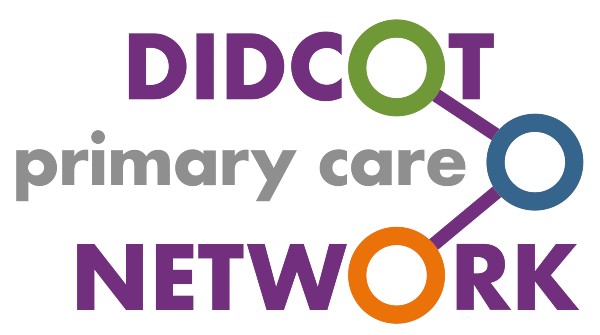We use cookies to help provide you with the best possible online experience.
By using this site, you agree that we may store and access cookies on your device. Cookie policy.
Cookie settings.
Functional Cookies
Functional Cookies are enabled by default at all times so that we can save your preferences for cookie settings and ensure site works and delivers best experience.
3rd Party Cookies
This website uses Google Analytics to collect anonymous information such as the number of visitors to the site, and the most popular pages.
Keeping this cookie enabled helps us to improve our website.
Consent
The Health Centre staff and regulated third parties have access to patient records, but said access is strictly governed by clinical governance and confidentiality guidelines.
A clinician may ask you for your consent depending upon what procedure or treatment is being undertaken.

Consent Protocol
Purpose
This protocol details the approach of Oak Tree Health Centre to consent and the way in which the principles of consent are exercised; it is not intended to be a detailed legal or procedural resource because of the complexity surrounding the issue of consent in healthcare. The protocol applies to all clinical employees of Oak Tree Health Centre, and to those individuals not employed by but based at the Health Centre who administer clinical treatment. It will be reviewed every two years to ensure that it remains effective and relevant.
Importance of consent
Wherever possible a clinician must be satisfied that a patient understands and consents to a proposed treatment, to the administering of an immunisation, or to a medical investigation. This will include the nature, purpose, and risks of the procedure, and will be supported if necessary by the use of drawings, interpreters, videos or other means to ensure that the patient understands the procedure and has enough information to give their informed consent. NHS Choices defines consent as follows:
“For consent to be valid, it must be voluntary and informed, and the person consenting must have the capacity to make the decision. These terms are explained below.
- Voluntary: the decision to consent or not consent to treatment must be made alone, and must not be due to pressure by medical staff, friends or family.
- Informed: the person must be given full information about what the treatment involves, including the benefits and risks, whether there are reasonable alternative treatments, and what will happen if treatment does not go ahead. Healthcare professionals should not withhold information just because it may upset or unnerve the person.
- Capacity: the person must be capable of giving consent, which means they understand the information given to them and they can use it to make an informed decision”
Implied consent
By registering with the Health Centre, patients give an implied consent for clinicians and administrative staff to have access to, and act upon, data contained within their medical record as is necessary to meet their medical needs. Implied consent will be assumed for the majority of routine physical contacts with patients.
Where implied consent is assumed by the clinician, the following will apply:
- an explanation will be given to the patient as to what the clinician is about to do, and why; this can be obtained through a simple verbal consent e.g. “May I look at your throat?”
- the explanation will be sufficient for the patient to understand the procedure
- where there is a significant risk to the patient an “Expressed Consent” will be obtained
Expressed consent
Expressed consent (written or verbal) will be obtained for any procedure which carries a risk that the patient is likely to consider as being substantial. A note will be made in the medical record detailing the discussion about the consent and the risks involved.
Obtaining consent
Consent Implied or expressed) will be obtained prior to the procedure. The clinician will ensure that the patient is competent to provide consent (if aged 16 years or over) or has “Gillick Competence” (if aged under 16 years). The consent will include the provision of all information relevant to the procedure.
Any question posed by the patient will be answered honestly, and information necessary for the informed decision will not be withheld unless there is a specific reason to do so; in any case where information is withheld then this decision will be recorded in the patient’s medical record.
The clinician who obtains the consent will be the clinician who carries out the procedure; they will be fully qualified and will be knowledgeable about the procedure and its associated risks.
The scope of the authority provided by the patient’s consent will not be exceeded unless in the case of medical emergency.
The Health Centre acknowledges the right of the patient to refuse, delay or limit the scope of the consent. The patient may also wish to seek further information before proceeding or may seek the presence of a chaperone.
Clinicians will ensure that consents are given freely and not under duress e.g. under pressure from other family members etc.
Clinicians will use a Consent Form where procedures carry a degree of risk or where, for other reasons, they consider it appropriate to do so e.g. malicious patients. No alterations will be made to the Consent Form once it has been signed by the patient. If a patient is mentally competent to give consent but is physically unable to sign the Consent Form, the clinician should complete the form and then ask an independent witness to confirm on the form that the patient has given their consent.
Other aspects which the clinician may choose to discuss are:
- details of the diagnosis, prognosis, and implications if the condition is left untreated
- the options for treatment, including the option not to treat if applicable
- details of any subsidiary treatments e.g. pain relief
- patient experiences during and after the treatment, including common or potential side effects and the recovery process
- the probability of success and the possibility of further treatments
- the option of a second opinion
Immunisations
Informed consent must be obtained prior to giving an immunisation. There is no legal requirement for consent to immunisation to be in writing and a signature on a consent form is not conclusive proof that consent has been given, but serves to record the decision and discussions that have taken place with the patient, or the person giving consent on a child’s behalf. In the case of childhood immunisations parental consent is obtained by the general practitioner at the 6 weeks check up and the consent, or otherwise, recorded in the patient’s medical record.
Consent of children
Everyone aged 16 years or more is presumed to be competent to give consent for themselves, unless there is evidence which demonstrates otherwise. If a child under the age of 16 has “sufficient understanding and intelligence to enable him/her to understand fully what is proposed” (known as Gillick Competence), then they will be considered competent to give consent. Young people aged 16 and 17, and legally competent younger children may therefore sign their own Consent Form, but may like a parent to countersign as well.
For children under 16 years of age, who do not demonstrate Gillick Competence, a parent or guardian should give consent on the child’s behalf by signing accordingly on the Consent Form.
Minor surgery
Consent is obtained in all cases before the procedure is undertaken. The process is explained to the patient and the opportunity is given to raise any questions with the clinician.
Insurance reports and sundry documents
Written consent to provide information to the insurance company must accompany the request before the report is undertaken. In addition, the patient can request sight of the report before it is sent.
Consent to the release of results to a third party
When a patient has consented to the release of results etc. to a third party e.g. a family member, the patient’s consent is recorded in the patient‘s medical record.

